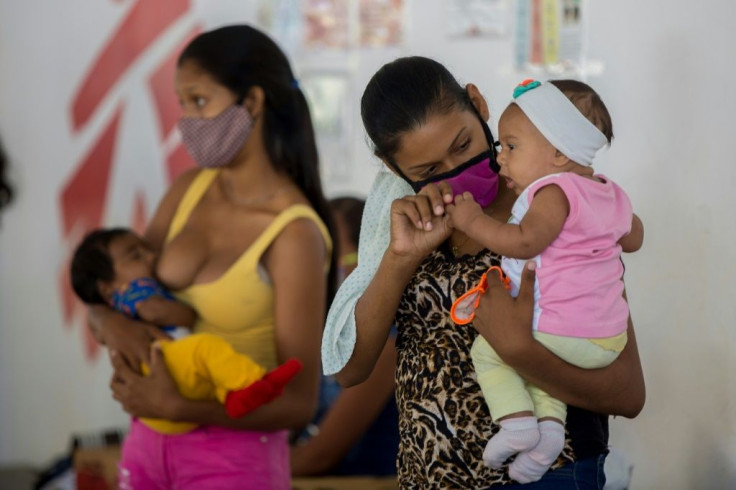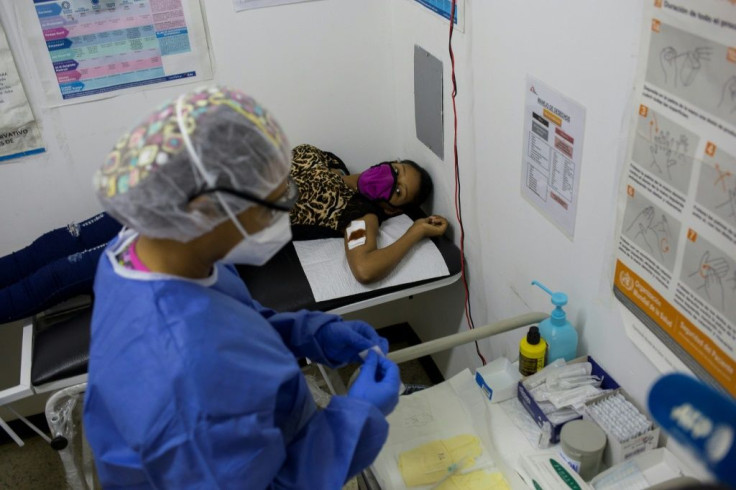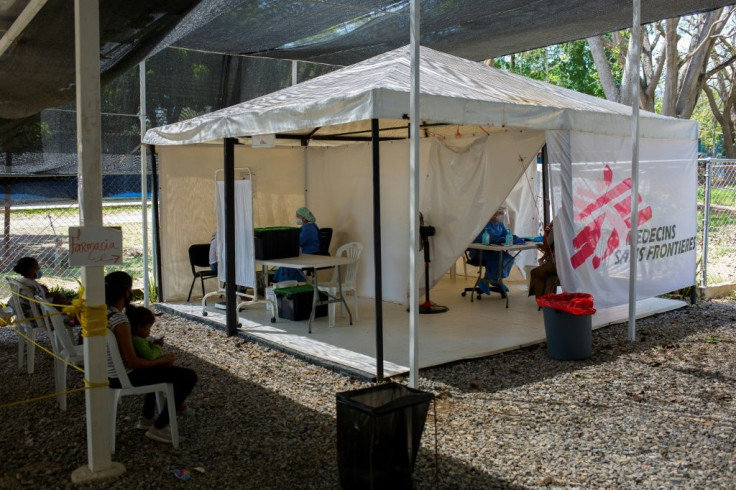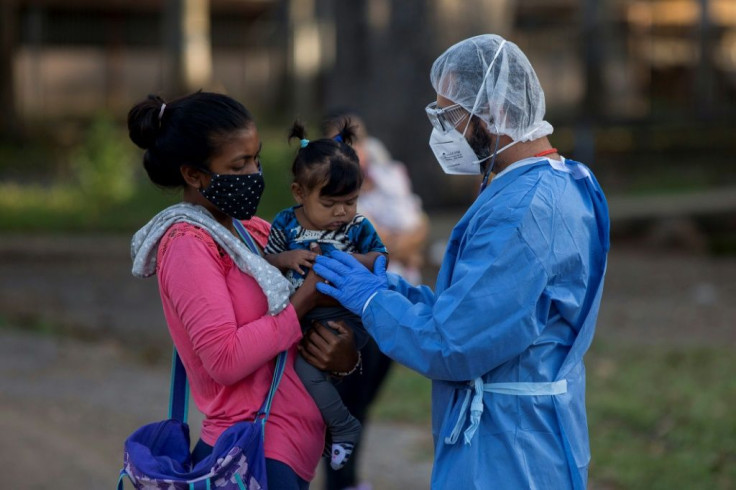Free Contraception Helps Fight High Venezuela Teen Pregnancy Rate
The news that she wasn't pregnant came as a relief to 17-year-old Deiglis, already the mother to a five-month-old baby.
She wasn't planning to have another child, but like most people in Venezuela, she can't afford contraception.
Teenage pregnancies are an increasing issue in poor rural communities such as Vidono, Deiglis's home, where there's a lack of sexual and reproductive education and even less public promotion of contraception methods.
Deiglis took three buses to reach a clinic run by the NGO Doctors Without Borders, where she received a free hormonal implant under her skin that will provide five years of contraceptive protection.

"I can't afford to buy one, it's really expensive," she told AFP.
The treatment normally costs $10: four times the minimum monthly salary.
The Doctors Without Borders clinic -- called "Friends for Health" -- focuses primarily on vulnerable young people like Deiglis.
Of the more than 10,000 sexual and reproductive health consultations carried out by the clinic in 2020, 30 percent involved teenagers.

"We have five contraception methods: the female condom, male condom, contraceptive pills, progesterone injections and implants, which last five years," said Lucia Brum, who runs the clinic in Anzoategui state.
Before receiving the implant, Deiglis needed to take a quick pregnancy test and produce a negative result.

Abortion is illegal in Venezuela and is only allowed if there is a risk to the mother's life.
Those breaking this law face between six months and two years in prison.
"Was your last sexual encounter with or without protection?" nurse Erika Fernandez asks Deiglis in a motherly tone.
"It really gets to you, seeing these youngsters," the 41-year-old Fernandez said later, breaking into tears.

"These treatments are expensive, the majority that come here tell us they can't afford any such treatment."
Venezuela is in its eighth year of recession and fourth of hyperinflation, decimating the purchasing power of millions of citizens.
A packet of birth control pills costs between $10 and $25, while an injection is around $11 -- all prices out of reach for ordinary Venezuelans.
"I either eat or buy my contraceptive method," said Maria Caraballo, 26, a secondary school teacher and mother of an eight-month-old, who receives an injection at the clinic every three months to avoid getting pregnant again.
In her class, she has seen "quite a few pregnant 13, 14-year-olds."
"Many parents feel uncomfortable sitting down and talking to their children," said Caraballo.
Magdymar Leon, coordinator for the Venezuelan Alternative Sex Education Association (AVESA), says that a poll conducted between October and December of 2020 found that 60 percent of girls questioned knew "nothing" about contraceptive methods.
President Nicolas Maduro has acknowledged the "problem" with teenage pregnancies, although there are no official figures on the issue.
A 2019 report from the UN Population Fund said 95 in every 1,000 births in the country were to mothers aged 15 to 19.
That put Venezuela behind only Ecuador (111) and Honduras (103) in Latin America but well over the regional average (62).
The alarming statistic is largely down to a lack of sex education.
Pregnant teenagers "need a lot of help," said Fernandez, the nurse, who wears a surgical mask, gloves, gown and cap to protect against Covid-19.
Sometimes the clinic cannot cope with patients arriving from neighboring towns.
Venezuela's public health system has collapsed under the strain of the coronavirus pandemic.
"Near where I live, they don't take much care of pregnant women," said Deiglis, who left the clinic with her implant.
© Copyright AFP {{Year}}. All rights reserved.





















